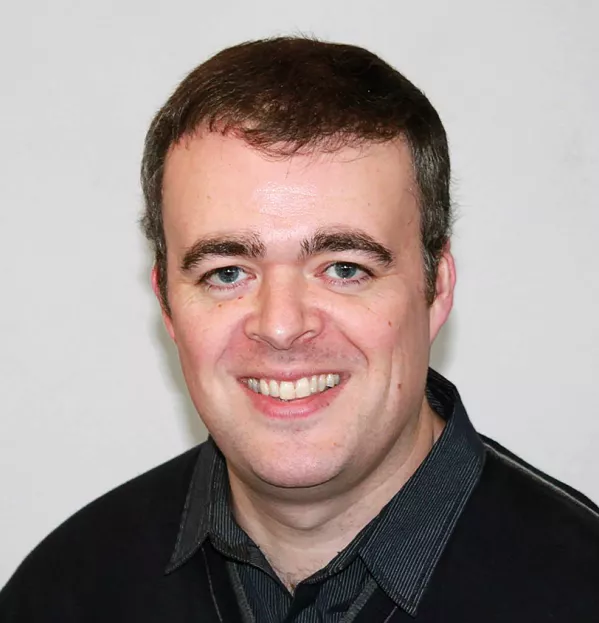‘I have had very little time for leading learning’

Tim Wallace says being a headteacher is a privilege and that he loves it. But the job could be about to change dramatically - and the new president of school leaders’ body AHDS is calling for reinforcements to help grapple with a potentially seminal reform.
Wallace wants primaries to have the same number of promoted posts as secondaries. Otherwise, he fears, primary headteachers - already seeing their day-to-day role expanding amid staff shortages and budget cuts - will struggle even more to be “leaders of learning”.
Wallace is head at Paradykes Primary in Midlothian and makes no bones about it: he loves his job. His wife Sheryl is also a head, but their son, Ruaridh, who is in P7, stops education from dominating their domestic lives. “He keeps us grounded,” says Wallace, with a smile.
Wallace welcomes the government’s plans for a headteachers’ charter which the SNP says will “set out the rights and responsibilities of headteachers”. It has the potential to bring clarity to the head’s role, he believes. “You can see there could be benefits in having that box put round what is expected of us,” he says.
However, he warns that leading learning - which the government wants to empower headteachers to do - too often slips through the net because schools are under-staffed.
“In the past few weeks, I have been a janitor, cleaner, dining supervisor, playground assistant, social worker, councillor, behaviour therapist, nurse, learning assistant, finance assistant, receptionist, and supply teacher…What I had very little time for was leading learning and teaching.”
If primary schools were staffed on the same basis as secondaries, he says, that picture could be different.
Recently, an AHDS member was accidentally sent the staffing formula for secondary schools in their authority, says Wallace. If their primary had been staffed on the same basis as the local secondaries, they would have had seven more promoted members of staff.
“I am not saying that secondary schools are over-staffed, but rather there is a real need for an increase in staffing for nursery and primary teams,” Wallace continues. “Imagine what improvements could be made with seven additional promoted staff or, in fact, even just one.”
Call for pay review
Terry Lanagan, executive officer for the Association of Directors of Education in Scotland, acknowledges there are “fewer promoted posts proportionately in primary than secondary” - but says the extent of the difference will vary from one local authority to the next.
The larger number of promoted posts in secondary schools is down to the way they have historically been organised, says Lanagan.
He adds: “Traditionally promoted posts in secondary have been around departmental or more recently faculty lines. Primary schools are not organised that way.”
Lanagan does not think upping the number of promoted posts in primary is “affordable in the current climate”, adding: “It is also worth noting that the restructuring in secondary schools into faculties has reduced the number of promoted posts significantly.”
Teaching unions say that promoted posts in schools plummeted between 2010 and 2015 by more than 1,500.
Wallace, who took on his role as AHDS president last month, is also calling for teacher and headteacher pay to be reviewed to make the jobs more attractive. “It’s about time terms and conditions were looked at again - and pay, for headteachers and teachers,” he says.
At the moment he is trying to drive forward improvement in his 275-pupil school at the same time as teaching a P5 class twice a week, because he cannot get a supply teacher.
“The teacher’s salary is an issue when it comes to attracting supply staff,” he says.
Wallace moved into a brand-new school building in August with plenty of room for his roll to grow - he has 11 classes but there is space for 15. He took the job as headteacher at Paradykes, the largest of three primaries in Loanhead, after a spell as acting head at Clovenstone Primary in Edinburgh.
He describes his current school as somewhere between Clovenstone, which serves the notoriously deprived Wester Hailes area of Edinburgh, and South Morningside Primary, where he was depute head. It serves an area of the capital that is arguably as prejudged as Wester Hailes, but for being a particularly leafy suburb, not an area of poverty.
Wallace says he believes children’s wellbeing has to come before learning and, for that reason, Paradykes has had a play therapist working in the school two and a half days a week for the past seven years.
He is full of praise for his staff, who he describes as “hugely flexible and adaptable” and “inspirational”, adding: “We have some really challenging children and my staff go the extra mile to support them.”
He adds: “That opportunity to influence and to support the upbringing and learning of children is a privilege - we need to be selling that more and promoting teaching as a career.”
A Scottish government spokesman says: “We are reforming the education system to empower schools and headteachers to make decisions that most affect learning and teaching, including decisions about staffing.”
He adds: “Through our empowering schools consultation we are seeking views on how local authorities could increase transparency and best involve heads and school communities in education spending decisions.”
You need a Tes subscription to read this article
Subscribe now to read this article and get other subscriber-only content:
- Unlimited access to all Tes magazine content
- Exclusive subscriber-only stories
- Award-winning email newsletters
Already a subscriber? Log in
You need a subscription to read this article
Subscribe now to read this article and get other subscriber-only content, including:
- Unlimited access to all Tes magazine content
- Exclusive subscriber-only stories
- Award-winning email newsletters